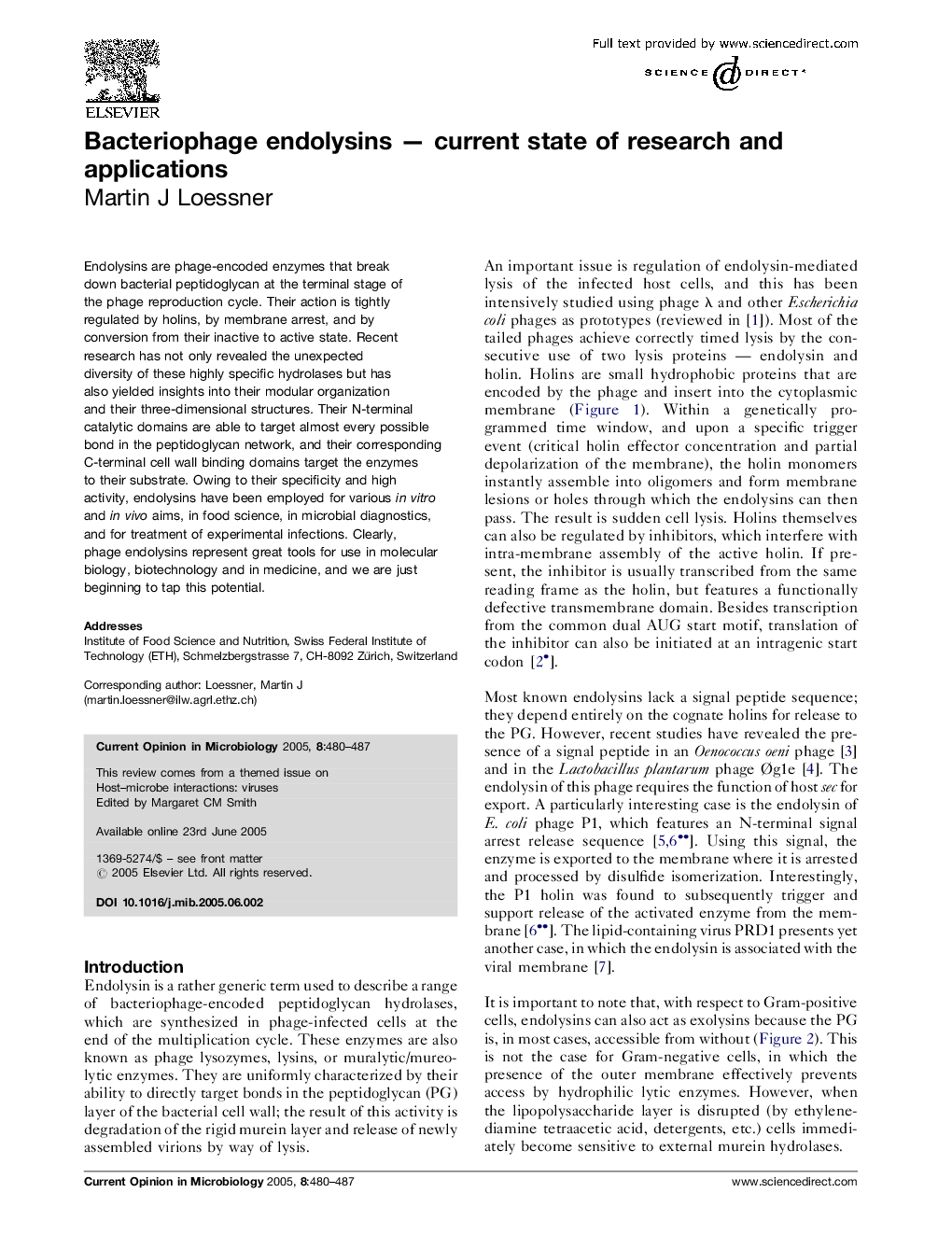| Article ID | Journal | Published Year | Pages | File Type |
|---|---|---|---|---|
| 9276668 | Current Opinion in Microbiology | 2005 | 8 Pages |
Abstract
Endolysins are phage-encoded enzymes that break down bacterial peptidoglycan at the terminal stage of the phage reproduction cycle. Their action is tightly regulated by holins, by membrane arrest, and by conversion from their inactive to active state. Recent research has not only revealed the unexpected diversity of these highly specific hydrolases but has also yielded insights into their modular organization and their three-dimensional structures. Their N-terminal catalytic domains are able to target almost every possible bond in the peptidoglycan network, and their corresponding C-terminal cell wall binding domains target the enzymes to their substrate. Owing to their specificity and high activity, endolysins have been employed for various in vitro and in vivo aims, in food science, in microbial diagnostics, and for treatment of experimental infections. Clearly, phage endolysins represent great tools for use in molecular biology, biotechnology and in medicine, and we are just beginning to tap this potential.
Related Topics
Life Sciences
Immunology and Microbiology
Microbiology
Authors
Martin J Loessner,
